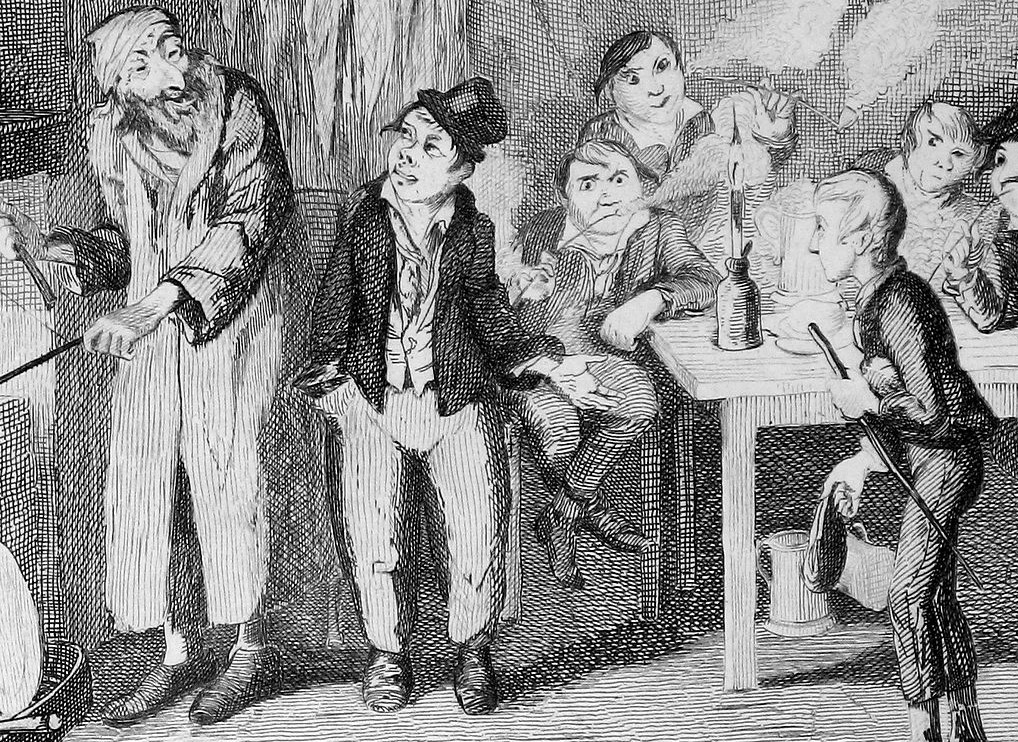Why is it that the Industrial Revolution of the 19th century is so often our go-to mental paradigm for poverty? CapX’s John Ashmore, for instance, recently wrote of those who “feel an argument about poverty is incomplete without claiming we’ve somehow gone back to the 19th century.” Were there no poor people before that? (There were, obviously.) There are a number of possible answers – an increase in the concentration of poverty with growing urbanization and industrialization, which made poverty more visible; the rising standard of living, which made poverty seem less “normal”; or (without descending into Marxist theories) a more visible contrast between wealthy owners and poorer workers.
There is surely merit in all of those. But there is another reason that’s also valid, and its name is Charles Dickens. Think of the orphaned Oliver Twist asking for more gruel, Wilkins Micawber’s despondent letters to David Copperfield coupled with his ever-buoyant hope that “something will turn up,” Bob Cratchit’s meager fire in the back room of Scrooge and Marley, Tiny Tim hobbling along on his crutch. Dickens’s stories and characters made a lasting impression in the English-speaking imagination, searing that particular time and milieu – and its image of industrial poverty – into our cultural consciousness. Dickens’s enduring tales made a striking emotive appeal on behalf of the poor, an appeal so striking that our collective mind has not yet forgotten it.
Man can never be fully intellectualized. He has an emotive and passionate dimension which, though it can lead him astray, is no less human for that. The power of story lies in its ability to involve this dimension of man as well as the others. There’s a reason that we have been left with the Gospels and not a catechism – both are important, but the latter only codifies truths instilled by the other. We’re wired to do, not calculate. Despite this, it’s understandable that thoughtful people have a bias against appeals to emotion – such appeals can easily devolve into the shallow feelings-worship that’s far too prevalent these days. Overtures to emotion can also be easily manipulated, and historically have been, by evil people in power. But on the other hand, arguments that seek to appeal exclusively to reason run the risk of sounding sterile and disconnected. Joseph Sunde put it well on this same blog a few months ago:
“We can point to numbers and basic economic realities, but in doing so, we ought not neglect the connections between freedom and virtue, community, generosity, and human relationship. We can praise the material abundance of our modern, capitalistic world, but in doing so, we ought to be able to articulate a moral framework for free enterprise and a moral response to the challenges posed by technology, disruption, free trade, and so on. We can expose the twisted idealism of socialism. But let’s be sure to revive a proper idealism of capitalism while we’re at it.”
This revival of a “proper idealism” has to involve an appeal to hearts as well as minds. Unfortunately the proponents of socialism nowadays often act as though they have a monopoly on “being human” from an economic standpoint. They talk of kindness and compassion and cast all their government-funded dreams in that mold. We have to take that back. Just because we say that government isn’t always the best way to help the poor doesn’t mean we’re solipsistic boors who lack kindness and compassion – quite the opposite, actually. There’s no reason that we can’t use the language of compassion as well; we just have to be better at it. Numbers alone rarely change minds.
Danish philosopher Søren Kierkegaard gives a memorable exposition of this idea in a journal entry dated August 1, 1835. “What I really need is to get clear about what I must do, not what I must know, except insofar as knowledge must precede every act. What matters is to find a purpose, to see what it really is that God wills that I shall do; the crucial thing is to find a truth which is truth for me, to find the idea for which I am willing to live and die.” Kierkegaard could seem relativistic at first blush, especially if that last phrase is read in isolation. But consider what he was really driving at. If the truths I am offered don’t touch me in some way, will they be consequential in my life? An idea “for which I am willing to live and die” has to involve more than just the rational dimension. It’s true that we need to guard against being uncritically sentimental, and help others do so, but neither can we be unsentimentally critical. God created us so and became so himself. Pope Benedict XVI, in a December 2009 audience in which he pointed to the emotional dimension of prayer, put it thus: “Basically, dear friends, our hearts are made of flesh and blood….In becoming Man, the Lord himself wanted to love us with a heart of flesh!”
Dickens could have written a dissertation on economic measurements of 19th-century Britain, but he wrote stories instead. Otherwise few would remember him or his world today. Not that those numbers are unnecessary – don’t get me wrong – but they’re insufficient. To argue effectively on behalf of a free and virtuous society (or on behalf of anything, for that matter), a convincing case is one that involves the whole person. That’s what our arguments should strive for.
(Homepage photo credit: Oliver Twist with the Artful Dodger. Public domain.)

